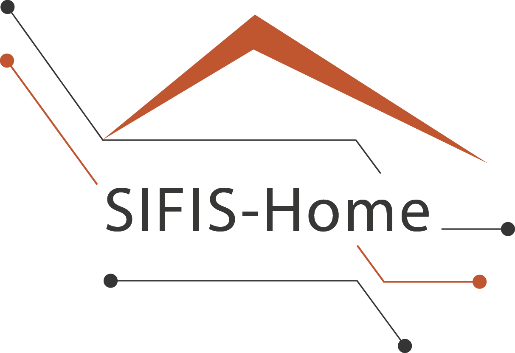Program
Friday, July 1st, 2022The time shown in this schedule is the time in Milan - Central Europe time zone (GMT+2)
8:30 a.m. – 9:00 a.m.
Registration / SETUP
9:00 a.m. – 9:15 a.m.
Welcome Session
Session Chair: Fulvio Valenza, Politecnico di Torino, Italy
9:15 a.m. – 10:30 a.m.
Cyber Security EU funded projects
Session Chair: Alessio Sacco, Politecnico di Torino, Italy

GUARD – Guarantee Reliability and trust for Digital service chains
Matteo Repetto, CNR-IMATI, Italy
Web site: https://guard-project.eu/

SIMARGL – Secure Intelligent Methods for Advanced Recognition of Malware and Stegomalware
Joerg Keller, FernUniversitat in Hagen, Germany
Abstract – SIMARGL is a project co-funded by the European Commission under Horizon 2020 programme, to combat the pressing problem of malware. It aims to tackle the new challenges in the cybersecurity field, including information hiding methods, network anomalies, stegomalware, ransomware and mobile malware.
Web site: https://simargl.eu/

SDN-microSENSE
Panagiotis Sarigiannidis University of Western Macedonia, Greece
Abstract – In the era of digital economies, the smart electrical grid has provided numerous benefits, such as two-way communication, pervasive control and self-healing. However, this evolution raises severe cybersecurity and privacy risks that can lead to disastrous effects. False data injection attacks, large-scale denial of service and unauthorised access represent common cyber threats against critical infrastructures. Based on the sensitive nature of the smart electrical grid, SDN-microSENSE provides an overall cybersecurity solution that increases the resilience and reliability of the Electrical and Power Energy Systems (EPES), combining multiple technologies capable of detecting and mitigating various kinds of cyberattacks and cascading effects.
Web site: https://www.sdnmicrosense.eu/

PALANTIR - Practical Autonomous Cyberhealth for resilient SMEs & Microenterprises
Ignazio Pedone Politecnico di Torino, Italy
Web site: https://www.palantir-project.eu/

SIFIS-Home
Tom Tuunainen Centria University of Applied Sciences, Finland
Web site: https://www.sifis-home.eu/

INSPIRE-5Gplus
Vincent Lefebvre Research Dpt and Tages, France
Web site: https://www.inspire-5gplus.eu/

ELECTRON - rEsilient and seLf-healed EleCTRical pOwer Nanogrid
Panagiotis Sarigiannidis University of Western Macedonia, Greece
Web site: https://electron-project.eu/
10:30 a.m. – 11:00 a.m.
Coffee break
11:00 a.m. – 12:00 a.m.
Technical Session 1 – Attack Detection and Threat Identification
Session Chair: Joerg Keller, FernUniversitaet in Hagen, Germany
Multi-domain Denial-of-Service Attacks in Internet-of-Vehicles: Vulnerability Insights and Detection Performance
Roshan Sedar, Charalampos Kalalas Centre Tecnològic de Telecomunicacions de Catalunya, Spain
Jesus Alonso-Zarate, Francisco Vázquez-Gallego i2CAT, Spain
An application of Netspot to Detect Anomalies in IoT
Tom Tuunainen, Olli Isohanni, Mitha Jose Centria University of Applied Sciences, Finland
Model-Driven Network Monitoring Using NetFlow Applied to Threat Detection
Daniel González-Sánchez, Ignacio Domínguez Martínez-Casanueva, Luis Bellido, David Fernández Universidad Politécnica de Madrid, Spain
Antonio Pastor,Cristina Pinar Muñoz Zamarro, Alejandro Antonio Moreno Sancho, Diego Lopez Telefonica I+D,Spain
12:00 a.m. – 1:00 p.m.
Technical Session 2 – Security Platforms and Architectures
Session Chair: Vincent Lefebvre, Research Dpt & Tages, France
Evaluation of the data handling pipeline of the ASTRID framework
Matteo Repetto CNR - IMATI, Italy
Guerino Lamanna Infocom, Italy
Dynamic Risk Assessment and Certification in the Power Grid: A Collaborative Approach
Athanasios Liatifis, Panagiotis Radoglou Grammatikis, Panagiotis Sarigiannidis, University of Western Macedonia, Greece
Pedro Ruzafa Alcazar, University of Murcia, Spain
Dimitrios Papamartzivanos, Sofia Anna Menesidou, Ubitech Ltd., Greece
Thomas Krousarlis (Inlecom Innovation, Greece
Alberto Martin Molinuevo, Inaki AnguloTECNALIA, Spain
Antonios SarigiannidisSidroco, UK
Thomas Lagkas International Hellenic University, Greece
Vasileios Argyriou University of Surrey, UK
Authentication and Authorization in Cyber-Security Frameworks: a Novel Approach for Securing Digital Service Chain
Giovanni Grieco, Domenico Striccoli, Giuseppe Piro, Alfredo Grieco Politecnico di Bari - CNIT, Italy
Raffele Bolla, Universita di Genova - CNIT, Italy
1:00 p.m. – 2:00 p.m.
Lunch Break
2:00 p.m. – 3:00 p.m.
Technical Session 3 – Security Models and Trust Schemes
Session Chair: Charalampos Kalalas, Centre Tecnològic de Telecomunicacions de Catalunya (CTTC), Spain
A model of capabilities of Network Security Functions
Cataldo Basile, Daniele Canavese, Leonardo Regano, Ignazio Pedone, Antonio Lioy Politecnico di Torino, Italy
Always-Sustainable Software Security
Vincent Lefebvre Research Dpt and Tages, France
Gianni SantinelliTAGES, Italy
Security Automation using Traffic Flow Modeling
Simone Bussa, Riccardo Sisto, Fulvio Valenza Politecnico di Torino, Italy
3:00 p.m. – 3:45 p.m.
Keynote speech
Session Chair: Riccardo Sisto, Politecnico di Torino, Italy
DDoS Mitigation and Network Softwarization
Carol Fung, Concordia University

Short Bio – Dr. Carol Fung is an Associate Professor and Gina Cody Research Chair on Cybersecurity and the Internet of Things at Concordia University, Canada. She had her PhD degree from the University of Waterloo. Her research interests include Network Privacy and Security, the Internet of Things, Network Management, and Social Networks. She has more than 100 peer reviewed publications. She is the Editor of TNSM and COMNET.
3:45 p.m. – 4:00 p.m.
Closing
Session Chair: Fulvio Valenza, Politecnico di Torino, Italy
